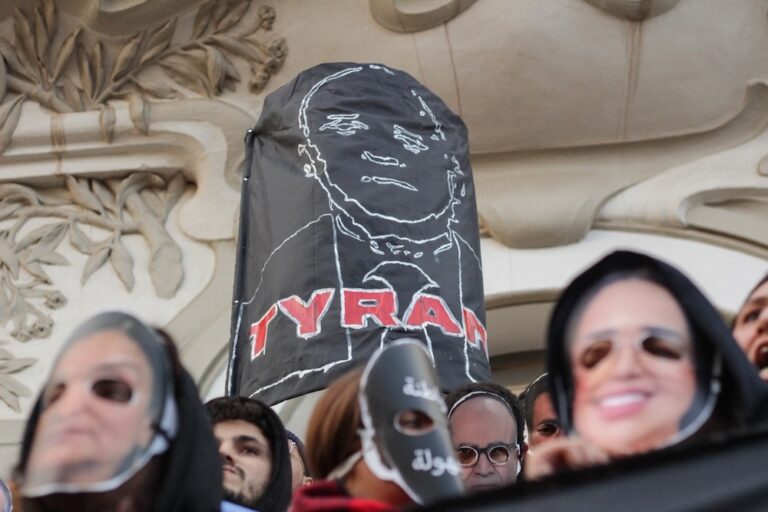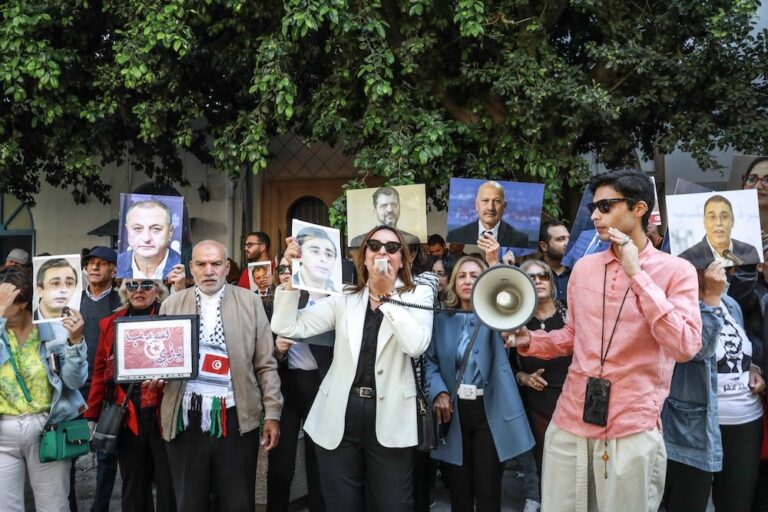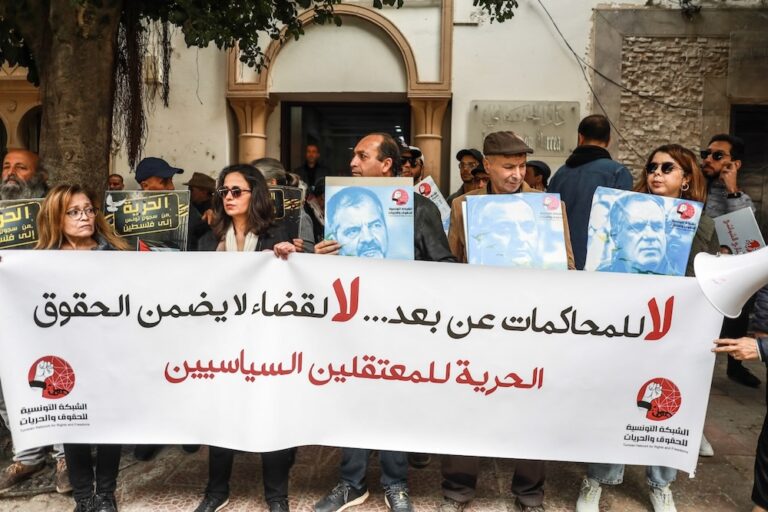(OLPEC/IFEX) – The following is an 18 February 2006 statement by the Observatory for Freedom of the Press, Publishing and Creation (OLPEC): Upsurge of assaults on the freedom of the press Tunis – OLPEC is alerting the public about burgeoning acts of censorship that are striking the Tunisian and foreign press in Tunisia. Following the […]
(OLPEC/IFEX) – The following is an 18 February 2006 statement by the Observatory for Freedom of the Press, Publishing and Creation (OLPEC):
Upsurge of assaults on the freedom of the press
Tunis – OLPEC is alerting the public about burgeoning acts of censorship that are striking the Tunisian and foreign press in Tunisia. Following the confiscation at news kiosks of three Tunisian periodicals at the end of last month, the following assaults took place:
On 7 February 2006, the authorities banned the circulation of issue 257 of “Al Maraa Al Youm” magazine, edited in Dubai. The reason for that censorship seems to have been an article by the weekly’s editorial writer, E. Mihoubi, in which he referred to the illness of the Tunisian president Ben Ali.
The 4 and 7 February editions of the French daily “Le Monde” were also banned from circulation in Tunisia. We point out that many newspapers (most of them Algerian and Moroccan), the French daily “Libération”, the weekly “Le Canard enchaîné”, and the London daily “Al Hayat” have been prohibited from circulation for many years, whereas “Al Quds Al Arabi” is regularly banned from circulation.
Last week, the political police publicly summoned many human rights defenders, as well as members of the editorial board of the newspaper “Kalima” and confiscated copies of the newspaper in their possession after having subjected them to a search.
We would like to point out that the Department of the Interior continues to deny the newspaper the right to publish, despite the completion of legal formalities by the editorial team. On 10 September 2005, the “Kalima” editorial team submitted the required formalities as required by law (Sec. 13 of the press code) for the fourth time since 1999 in the presence of representatives of the IFEX-Tunisia Monitoring Group #8722; still without obtaining the acknowledgement required by law to publish and print an official newspaper. The “Kalima” team has been publishing the newspaper online since 2000; however, the site is blocked in Tunisia and Tunisian readers have no access to the site. That is the reason why the team decided to publish in print with its own resources and to circulate the newspaper.
OLPEC is worried about this escalation of censorship that is stifling the Tunisian and foreign press at a time where the authorities had promised to liberate the press in Tunisia.
– It takes note that despite the repeal of the formal mechanism of the legal deposit (“dépôt légal”) for Tunisian periodicals, which has just recently been approved, the formality continues to be applied against the foreign press and is transformed into a form of preliminary censorship by the Department of the Interior each time a newspaper criticises Tunisian politics or evokes taboo subjects.
– It also states that the repeal of that formality for Tunisian periodicals has not been synonymous with freedom of expression and that, on the contrary, censorship has come back even stronger. That serves as proof that the obstacle has never been the “dépôt légal”, which is a normal formality concerning archival conservation, but rather the intolerance of the authorities to a climate that embraces freedom of the press.
– It calls for the repeal of the legal requirement that new periodicals must be officially acknowledged prior to publication, as well as the freedom of dissemination for all audiovisual media.
Signed for OLPEC,
Mohamed Talbi, President


